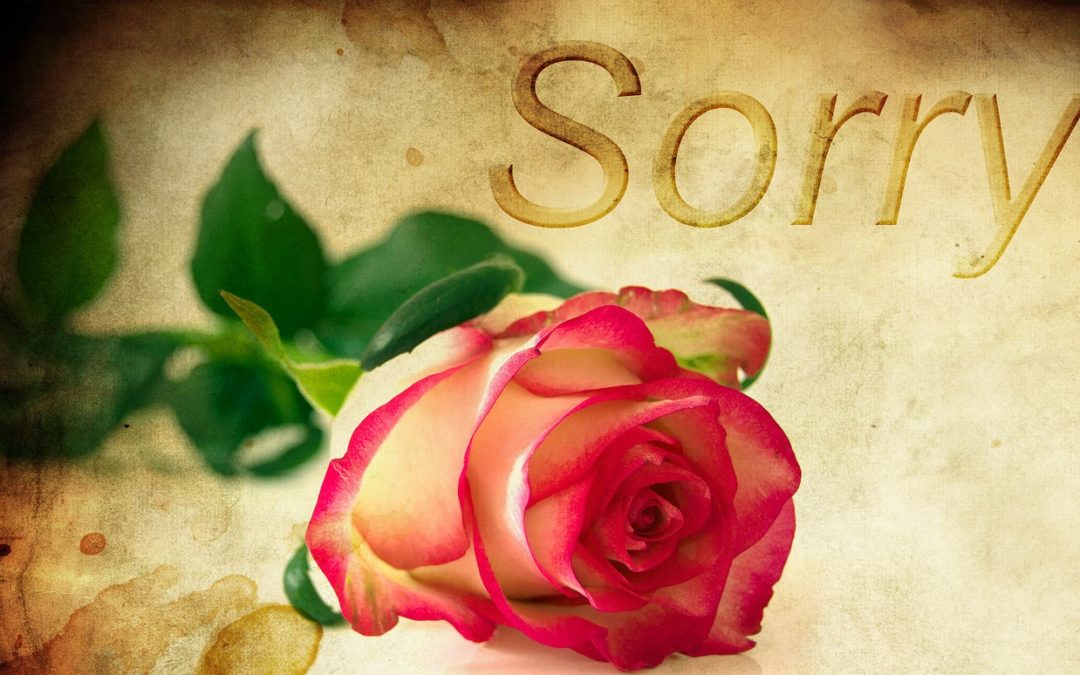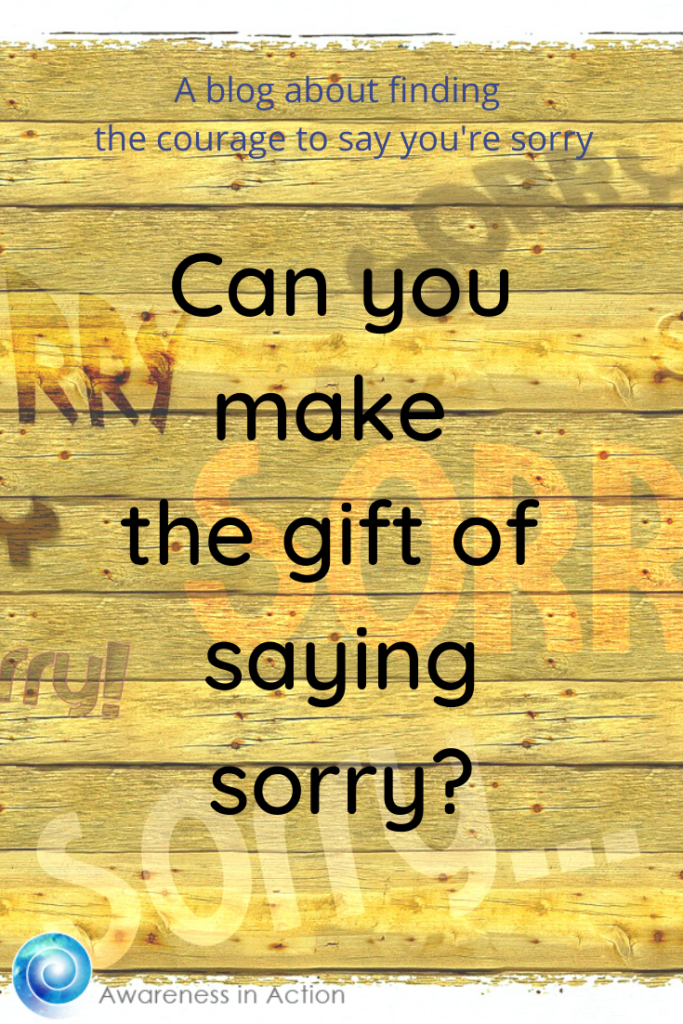
Can you make the gift of saying sorry?
We Brits say ‘sorry’ all the time. In most cultures you only say sorry when you believe you have done something wrong. In the UK it is used as a communication tool. We say ‘sorry’ when we accidentally bump into someone or need to squeeze past them. If we want someone’s attention, we tend to start out by saying , ‘sorry to interrupt’, or ‘sorry to ask but…’It’s partly to do with wanting to be polite but it is also part of our difficulty in being direct. Living in the Netherlands, as I do, I have had to unlearn the habit because people find it irritating. Dutch people are very direct.
Being able to say sorry authentically when you know you’ve behaved in a way that was harmful is a wonderful and important skill. Apology has the power to repair harm, mend relationships, soothe wounds and heal broken hearts.
So why can it feel so hard to say sorry?
Let’s look at a few possibilities:
• When we don’t think what we did is such a big deal, so it’s not worth apologising for.
• If we have trouble seeing things from another person’s perspective, we might not see the need to say sorry.
• The truth is that is very uncomfortable when we do realise that we have something to say sorry about. Sometimes we just cannot manage to admit we’ve done anything wrong.
Saying sorry as a gift to yourself
To overcome these obstacles, we need to think a bit more deeply.
We might think that saying sorry is all about giving to the other person. Of course, that is an important part and we will come to it soon. However, it is important to realise the benefits for yourself too.
Often when we know we have hurt someone we feel guilty and ashamed. It can cause us stress. Depending on how serious the circumstances were, it might even keep us awake at night. The whole experience is painful and distressing. When we say sorry, we are healing our own feelings of regret and remorse.
Having to dig into our actions and realising that we did not behave well is a humbling experience. It’s hard to admit we hurt someone and makes us feel vulnerable. Perhaps we can be less inclined to judge how others behave when we reflect on our own behaviour.
It can also become more possible to forgive ourselves. It puts us back in touch with our own basic goodness and reminds us that we are worthy of forgiveness and it is alright to ask for it. If we are open and willing, we can also learn from the mistakes we made that got us into having to say sorry. That’s a bonus going forward.
Saying sorry as a gift to other people
Research shows that receiving an apology has a noticeable, positive physical effect on the body. An apology actually affects the bodily functions of the person receiving it—blood pressure decreases, heart rate slows and breathing becomes steadier.
If someone tells you that they are sorry, it helps you to feel better. The ball is now in your court—you have the ability to forgive the person who hurt you. We can move from seeing them through anger and bitterness to seeing them as a fallible human being. The wrongdoer becomes more human, more like ourselves and we are touched by this. Then we are more able to access our natural empathy, and forgiveness becomes possible.
Apologising re-opens the lines of communication after the hurt has closed them down. It can even be that going through these difficulties together brings people closer and deepens the trust between them. When you go through something difficult with someone and come through it together, it inspires confidence in the strength of the relationship.
Things to be aware of when saying sorry
The most important thing is to mean it! It’s no good saying sorry just to smooth out a situation. People can sense it when you are pretending. It can do more damage that not apologising.
In the same way try to avoid saying sorry and then adding a ‘but’. This can happen when you are trying to apologise for your part in a difficult situation, but you want the other person to take responsibility for their share. You might say something like, I am really sorry that I shouted but you shouted at me first. This is tricky. Of course you want to explain yourself properly but I find that this is easier if you go all the way first.
The more open-hearted and direct we can be the more space opens up for dialogue and exchange.
Maybe Elton John was right, and ‘sorry’ does seem to be the hardest word. When we manage it though, the benefits for ourselves and others are very nourishing.


You might be interested in this new zoom+online course which starts on 15 June 2021 HOW DO YOU WANT TO FLOURISH IN YOUR RIPE OLD AGE?
Awareness in Action is dedicated to building a community of people interested in living a life of meaning and purpose based on sustainable wellbeing. If you would like to join with us, you could make a start by sharing and commenting on the ideas you find in the blogs on these pages. Your story is part of our journey.
